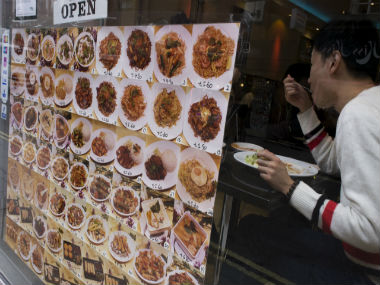Umami is the height of savoury flavour that we all seek in food, and MSG or monosodium glutamate is the easiest way - some would even say a shortcut - of achieving it. You might not even realise that you are consuming it in the dishes you are eating unless the pack or the restaurant announces it clearly. But why is an additive that enhances the flavour of food something to be particularly aware of? [caption id=“attachment_7800131” align=“alignleft” width=“380”]  Representational image. Image source: Getty Images.[/caption] The conversation around the health effects of MSG goes back at least 60 years, when consumers in the West started complaining about symptoms like headaches, sweating, weakness, numbness, heart palpitations, chest pain, nausea and vomiting after eating certain foods that contain this additive. This led to several medical studies on MSG, many of which denounced the addition of MSG to food. But is MSG really that unsafe, especially when you consider that the US Food and Drug Administration (FDA) labelled it “generally recognized as safe” or GRAS way back in 1995? Or is this just another food myth that’s had more than its day in the sunshine and needs to go up in smoke immediately? Let’s find out.
Chinese Restaurant Syndrome
Glutamic acid is a type of amino acid naturally found in foods like tomatoes, Parmesan cheese, dried mushrooms, soy sauce, meat, fish, poultry and milk. MSG is the sodium salt of glutamic acid. It was stabilised in the form of the popular (and now infamous) Ajinomoto in 1907 by Kikunae Ikeda, a chemistry professor based out of the University of Tokyo. It gained immense popularity because it instantly added the sought-after umami flavour, which Chinese, Japanese and many South-East Asian cuisines are known for. But in the 1960s, people eating out at Chinese restaurants in the US started complaining about the horrible effects they experienced within a few hours of bingeing at their favourite neighbourhood diner (or takeout, as the case may be). MSG was pinpointed as the cause of this Chinese Restaurant Syndrome in 1968 after Dr Robert Ho Man Kwok (who had only recently migrated from China) wrote about it to The New England Journal of Medicine. His letter caused quite a scandal and was followed by medical research into the harmful effects MSG on the body. Initial studies largely supported Kwok’s theory that MSG was indeed harmful: they reported a whole spate of health issues. A 1969 study by pharmacologist Herbert Schaumburg and neurologist Robert Bick showed that ingesting large amounts of MSG did cause headaches. Dr John Olney’s study, published in the journal Science in the same year, went one step ahead - it showed that mice dosed with MSG developed lesions in the brain, had stunted skeletal development, became obese and infertile. These initial research results were confirmed by multiple researchers over time. A study published in the International Journal of Clinical and Experimental Medicine in 2009 concurred with these studies. It said that scientists believed that “an oral dose of MSG at 3g (grams) or higher reproduced restaurant syndrome within 30 min (minutes). A direct intravenous dose of 50 mg also produced similar symptoms.” This study concluded that MSG had an “injurious effect on brain neurons” and therefore led to headaches and other deleterious health issues.
But is MSG really that bad?
You might be alarmed by this spate of scientific evidence that clearly states that MSG is bad for you, and wonder why the FDA or any other government or charitable public health institution continues to allow the addition of MSG in food. This very question and pressure from both the public and the American medical community led the FDA to probe into the controversial matter of MSG in 1995. The panel of health and nutrition experts appointed by the FDA summarily dismissed the use of the term Chinese Restaurant Syndrome because it wasn’t just Chinese restaurant food that led to the symptoms associated with MSG. Instead, they labelled it the “MSG symptom complex”. The experts also pointed out that all the studies mention three-gram doses of MSG which were orally or intravenously administered without any other food items. This amount of intake is simply impossible in everyday life since nobody injects MSG directly into their bloodstream. Instead, and especially at restaurants, MSG-laden foods are also combined with other dishes that offer nutrition more vibrant than just amino acids.
So should you eat MSG or not?
The FDA actually concluded that daily intake of 0.55g of MSG is within safe limits. Recent studies have also found that sodium levels in MSG are one-third of the quantity of sodium in table salt, which means it’s not going to increase your blood pressure levels. In fact, if your body is naturally used to a higher intake of sodium and glutamic acid, then you won’t experience any adverse effects - which is why many people never experience any symptoms at all after frequent MSG consumption. Despite all the controversy surrounding its use, it turns out that MSG is quite like every other food available globally today. Eat too much of it and your health might just suffer, but moderate consumption is safe, and in this case, delicious. For more information, please read our article on Headache: Types, Symptoms, Causes and Prevention_._ Health articles in Firstpost are written by myUpchar.com, India’s first and biggest resource for verified medical information. At myUpchar, researchers and journalists work with doctors to bring you information on all things health.


)

)
)
)
)
)
)
)
)



